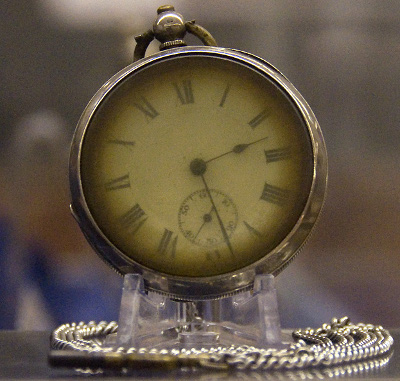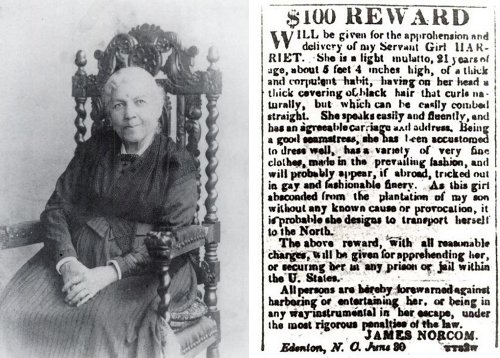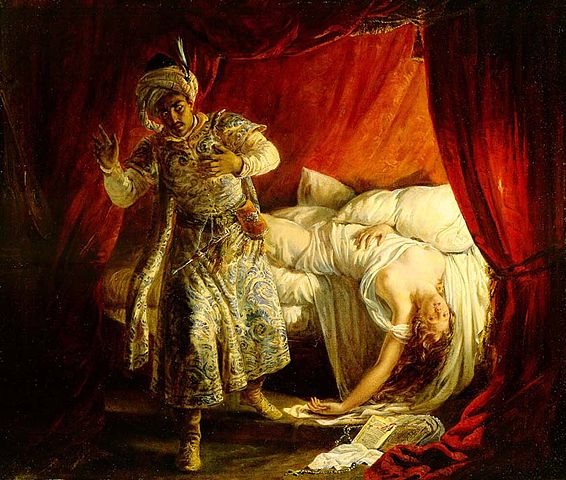
Catching a fly ball can be intimidating, so in 1993 Douglas Munoz invented a baseball cap that can be converted instantly into a glove.
“It is anticipated that the brim may assist the wearer in catching by extending the wearer’s reach.”

Catching a fly ball can be intimidating, so in 1993 Douglas Munoz invented a baseball cap that can be converted instantly into a glove.
“It is anticipated that the brim may assist the wearer in catching by extending the wearer’s reach.”
“It’s a damn poor mind that can only think of one way to spell a word.” — Andrew Jackson
“If the professors of English will complain to me that the students who come to the universities, after all those years of study, still cannot spell ‘friend,’ I say to them that something’s the matter with the way you spell friend.” — Richard Feynman
A gentleman received a letter, in which were these words: Not finding Brown at hom, I delivered your meseg to his yf. The gentleman, finding it bad spelling, and therefore not very intelligible, called his lady to help him read it. Between them they picked out the meaning of all but the yf, which they could not understand. The lady proposed calling her chambermaid, ‘because Betty,’ says she, ‘has the best knack at reading bad spelling of any one I know.’ Betty came, and was surprised that neither sir nor madam could tell what yf was. ‘Why,’ says she, ‘yf spells wife; what else can it spell?’ And, indeed, it is a much better, as well as shorter method of spelling wife, than doubleyou, i, ef, e, which in reality spell doubleyifey.
— Benjamin Franklin, letter to his sister, July 4, 1786

Writing on “The Sagacity of the Bees” in fourth century, Pappus of Alexandria argued that bees had contrived the hexagonal shape of their honeycomb cells “with a certain geometrical forethought.” Irregularly shaped cells “would be displeasing to the bees,” he wrote, and only triangles, squares, or hexagons could fill the space regularly. “The bees in their wisdom chose for their work that which has the most angles, perceiving that it would hold more honey than either of the two others.”
In 1964, in a charming address titled “What the Bees Know and What They Do Not Know,” Hungarian mathematician László Tóth told the American Mathematical Society that he had found a slight improvement on the classic honeycomb design: Instead of closing the bottom of each cell with three rhombi, as bees do, it’s more efficient to use two hexagons and two rhombi.
But, he added immediately, “We must admit that all this has no practical consequence. By building such cells the bees would save per cell less than 0.35% of the area of an opening (and a much smaller percentage of the surface-area of a cell). On the other hand, the walls of the bee-cells have a non-negligible width which is, in addition, far from being uniform and even the openings of the bee-cells are far from being exactly regular. Under such conditions the above ‘saving’ is quite illusory. Besides, the building style of the bees is definitely simpler than that described above. So we would fail in shaking someone’s conviction that the bees have a deep geometrical intuition.”
(László Fejes Tóth, “What the Bees Know and What They Do Not Know,” Bulletin of the American Mathematical Society, 1964, 468-81.)
UPDATE: Wait — maybe they’re not as smart as we thought. (Thanks, Vic.)
On Feb. 18, 1986, frustrated that heavy rains had prevented some jurors from reaching his court, U.S. District Court Judge Samuel King said, “I hereby order that it cease raining by Tuesday. Let’s see how that works.”
California immediately entered five years of severe drought, with strict water rationing.
When colleagues reminded King of his order in 1991, he said, “I hereby rescind my order of February 18, 1986, and order that rain shall fall in California beginning February 27, 1991.” Later that day the state received 4 inches of rain, the heaviest storm in a decade, and two further storms added another 3 inches.
In a letter to a local newspaper, King said this was “proof positive that we are a nation governed by laws.”
Do not suppose that I didn’t write, hundreds of times: the difficulty has been with the directing. I directed the letters so violently at first, that they went far beyond the mark — some of them were picked up at the other end of Russia. Last week I made a very near shot, and actually succeeded in putting ‘Earls Terrace, Kensington,’ only I over-did the number, and put 12,000, instead of 12. If you inquire for the letter at No. 12,000, I dare say they’ll give it you. After that I fell into a feeble state of health, and directed the letters so gently that one of them only reached the other side of the room. It’s lying by the side of the window now.
— Lewis Carroll, letter to Mary MacDonald, Nov. 5, 1864

This fob watch, retrieved from the wreck of the Titanic, confirms the approximate time that the ship went down, 2:20 a.m. on April 15, 1912.
On June 7, 1692, an earthquake destroyed Port Royal, Jamaica. Centuries later, during a 1960 excavation in Kingston Bay, archaeologist Edwin Link discovered a pocket watch whose hands were frozen at 11:43 a.m., pinpointing the onset of the quake and confirming eyewitness accounts made 268 years earlier.
On Aug. 12, 1949, time slowed briefly in London: Fifty starlings settled on Big Ben’s minute hand and delayed the striking of the hour by four and a half minutes.
There comes to me a question, your ear toward me bow,
Pray listen to my ditty and do not start a row –
I’ve lots of words peculiar, enough to fill a mow —
And thoughts crowd in upon me, like piglets by a sow.
So lay aside your weapons, let no one draw the bow,
And sit yourselves around me, all neatly in a row,
On clover leaves and timothy, all ready for to mow —
Alas, we must be moving, the farmer wants to sow.
— “Cryptox,” in the National Puzzlers’ League publication Enigma, May 1945

Oppressed by the sexual advances of her master, 22-year-old North Carolina slave Harriet Jacobs fled in 1835 and hid for seven years in a tiny loft under the roof of her grandmother’s house nearby:
The garret was only nine feet long and seven wide. The highest part was three feet high, and sloped down abruptly to the loose board floor. There was no admission for either light or air. … The air was stifling; the darkness total. A bed had been spread on the floor. I could sleep quite comfortably on one side; but the slope was so sudden that I could not turn on the other without hitting the roof. The rats and mice ran over my bed; but I was weary, and I slept such sleep as the wretched may, when a tempest has passed over them.
She cut a tiny peephole in the roof so that she could watch her children, who lived in the house but did not know of her presence. Eventually she escaped to the North, was reunited there with her brother and her children, and published an autobiography, Incidents in the Life of a Slave Girl, in 1861. “My body still suffers from the effects of that long imprisonment,” she wrote, “to say nothing of my soul.”
See Out of Sight.

So much ado, so much stress, so much passion and repetition about an Handkerchief! Why was not this call’d the Tragedy of the Handkerchief? … We have heard of Fortunatus his Purse, and of the Invisible Cloak, long ago worn thread bare, and stow’d up in the Wardrobe of obsolete Romances: one might think, that were a fitter place for this Handkerchief, than that it, at this time of day, be worn on the Stage, to raise every where all this clutter and turmoil. Had it been Desdemona’s Garter, the Sagacious Moor might have smelt a Rat: but the Handkerchief is so remote a trifle, no Booby, on this side Mauritania, cou’d make any consequence from it.
— Thomas Rymer pans Othello in A Short View of Tragedy, 1693

Didius Julianus bought Rome. When Pertinax, the successor to Emperor Commodus, failed to support the Praetorian Guard in 193, they overthrew him and auctioned off the whole empire. Cassius Dio writes:
Didius Julianus, at once an insatiate money-getter and a wanton spendthrift, who was always eager for revolution and hence had been exiled by Commodus to his native city of Mediolanum, now, when he heard of the death of Pertinax, hastily made his way to the camp, and, standing at the gates of the enclosure, made bids to the soldiers for the rule over the Romans. Then ensued a most disgraceful business and one unworthy of Rome. For, just as if it had been in some market or auction-room, both the City and its entire empire were auctioned off. The sellers were the ones who had slain their emperor, and the would-be buyers were Sulpicianus and Julianus, who vied to outbid each other, one from the inside, the other from the outside. They gradually raised their bids up to twenty thousand sesterces per soldier. Some of the soldiers would carry word to Julianus, ‘Sulpicianus offers so much; how much more do you make it?’ And to Sulpicianus in turn, ‘Julianus promises so much; how much do you raise him?’ Sulpicianus would have won the day, being inside and being prefect of the city and also the first to name the figure twenty thousand, had not Julianus raised his bid no longer by a small amount but by five thousand at one time, both shouting it in a loud voice and also indicating the amount with his fingers. So the soldiers, captivated by this excessive bid and at the same time fearing that Sulpicianus might avenge Pertinax (an idea that Julianus put into their heads), received Julianus inside and declared him emperor.
He didn’t last long — Septimius Severus swept into the capital after nine weeks, and the Praetorians switched allegiance again. “And so it came about that Julianus was slain as he was reclining in the palace itself; his only words were, ‘But what evil have I done? Whom have I killed?’ He had lived sixty years, four months, and the same number of days, out of which he had reigned sixty-six days.”